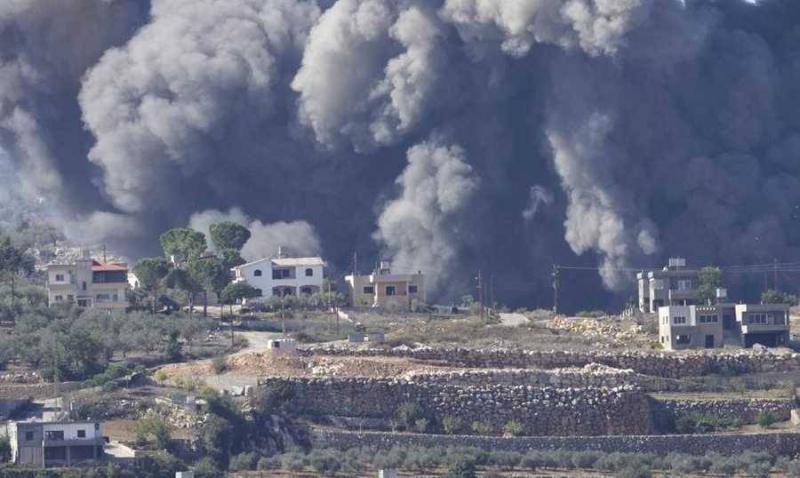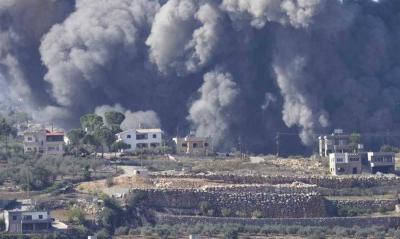European diplomatic sources have revealed that the recent reduction in hostilities between Hezbollah and Israel along the northern front, unlike previous situations, is not due to bad weather conditions but rather the response from both parties to mediation led by the French foreign intelligence chief, Nicolas Lerner. This occurred during his visit to Beirut, which included a meeting with a senior official from Hezbollah, as part of discussions with Lebanese political and security officials focusing on the post-ceasefire phase on the Gaza front, should the American-Egyptian-Qatari mediation succeed and potentially extend to southern Lebanon.
European diplomatic sources confirmed to "Asharq Al-Awsat" that the mere indirect agreement to lower the level of confrontation in southern Lebanon, from Paris's perspective, would drive both parties towards de-escalation. This process is expected to start in Gaza and automatically extend to the northern front, which reinforces diplomatic solutions over military ones, despite threats from Israeli Prime Minister Benjamin Netanyahu and members of his war cabinet, who argue that a Gaza ceasefire will not necessarily apply to southern Lebanon.
The sources indicated that an agreement to decrease confrontation could open the door to prioritizing political solutions, particularly through the implementation of UN Resolution 1701, which serves as the only framework for determining the land borders between Lebanon and Israel. This point was particularly discussed during Lerner's meetings, both official and otherwise, with senior Hezbollah officials regarding a proposal prepared by France and submitted to the Lebanese government, which noted its observations without reacting negatively to its contents.
The sources pointed out that simply agreeing to reduce tension would necessitate that Tel Aviv handle the situation positively, potentially leading to a decrease in military solutions that Netanyahu and his war team are still hinting at. They stated that Lerner discussed, in his official meetings—which included Prime Minister Najib Mikati, Army Commander General Joseph Aoun, and Intelligence Director Brigadier General Tony Kahwagi—the provision of all forms of support to the military institution so that it, alongside the international UNIFIL forces, could deploy in the area south of the Litani River, while also opening recruitment to ensure the necessary number of troops for implementing Resolution 1701.
The diplomatic sources expressed their belief that a Gaza ceasefire would extend to southern Lebanon and that Hezbollah would abide by it, indicating that the group is not inclined to act alone in supporting Hamas during the ceasefire period. This has been communicated to various Arab and international parties that have maintained contact with Hezbollah. They stated that Hezbollah does not intend to escalate the war and is seriously considering the advice given to avoid allowing Israel to provoke an expansion, necessitating restraint in its response to Israeli airstrikes in deep Lebanon.
The sources emphasized that Hezbollah reciprocates in its responses by targeting areas deep within Israel, while carefully managing its engagement in the ongoing confrontation, avoiding uncontrolled military escalation to maintain the situation under control in preparation for dealing with the phase after a ceasefire on the Gaza front. Occasionally, Hezbollah aims to send messages to Israel that the confrontation remains governed by a balance of terror, despite Israel frequently surpassing the established rules of engagement since the issuance of Resolution 1701, which halted military operations without resulting in a comprehensive ceasefire.
The question remains: How long will the reduction of conflict levels in southern Lebanon last? Are the conditions suitable for implementing Resolution 1701, which has been stalled since the outbreak of the July 2006 war? How will the international community react if mediation leads to a ceasefire on the Gaza front? And how prepared is France to play a role in implementing Resolution 1701, especially as it leads the international UNIFIL forces in southern Litani? As noted by "Asharq Al-Awsat."




